Cyber Security
.jpg?token=30e8c7f34beaab7da211415e0efa3c01)
Today almost all information and data in the world is stored and accessed digitally.
Companies are faced with many Cyber Security Threats in today’s ever-changing IT Landscape. In addition to the extraordinary possibilities that the Information Age has brought about, it has also given rise to the emergence of dangerous and wildly successful global cybercrime syndicates. Furthermore, new and expanding Federal / State Privacy Legislation and B2B NIST Compliancy Standards are adding security layers, security policies, and necessary remediation reporting.
It’s time to commit to making Cyber Security a top priority for your business by implementing proactive and preventative strategies to protect your data and intellectual property from cybercriminals.
54% of businesses believe that a data security event or cyberattack is inevitable. Surprisingly, business leaders believe that paying the ransom of a ransomware attack is a low-cost solution to vulnerability. While the ransom may or may not be affordable, the business interruption and incident response costs are considerably more volatile and expensive. It also doesn’t solve the security problem. In fact, the cost of downtime from ransomware is 23x greater than the actual average ransom.
At Triantan CCC we break down a complete Cyber Security Plan into three component parts: NIST, Risk, and Compliancy, or NRC for short. We can execute against these as an a la carte offering or as part of our MSSP service.

.png?token=29b8d5c07c0e3b72c369e838e07aab73)
.png?token=02ffb31bbe8e2bb96c234027f7f1919f)
.png?token=21084130c754023e3743c82bd66ff79a)
.png?token=2d35fb51e4d7aeef6fe44ac12b339d5c)
.png?token=537f1cd32f21dbd2159209e8589b7ba2)
.png?token=025639e7d0a35352b35c2d4be1b81a48)
.png?token=885d3432e2e3d16ed0c589ef122518d1)
.png?token=e86e6b93421b062b0e53f35eb47433b4)